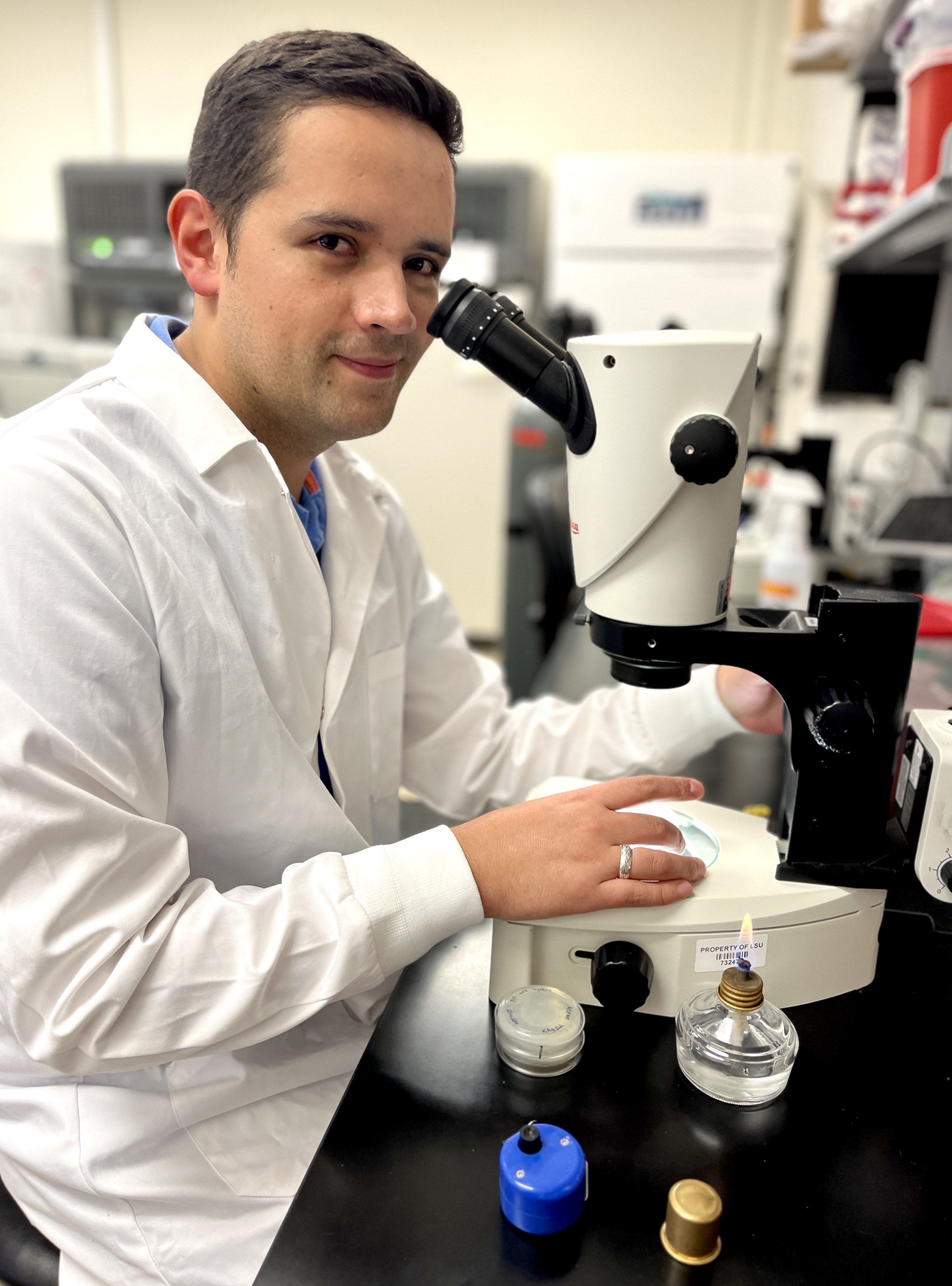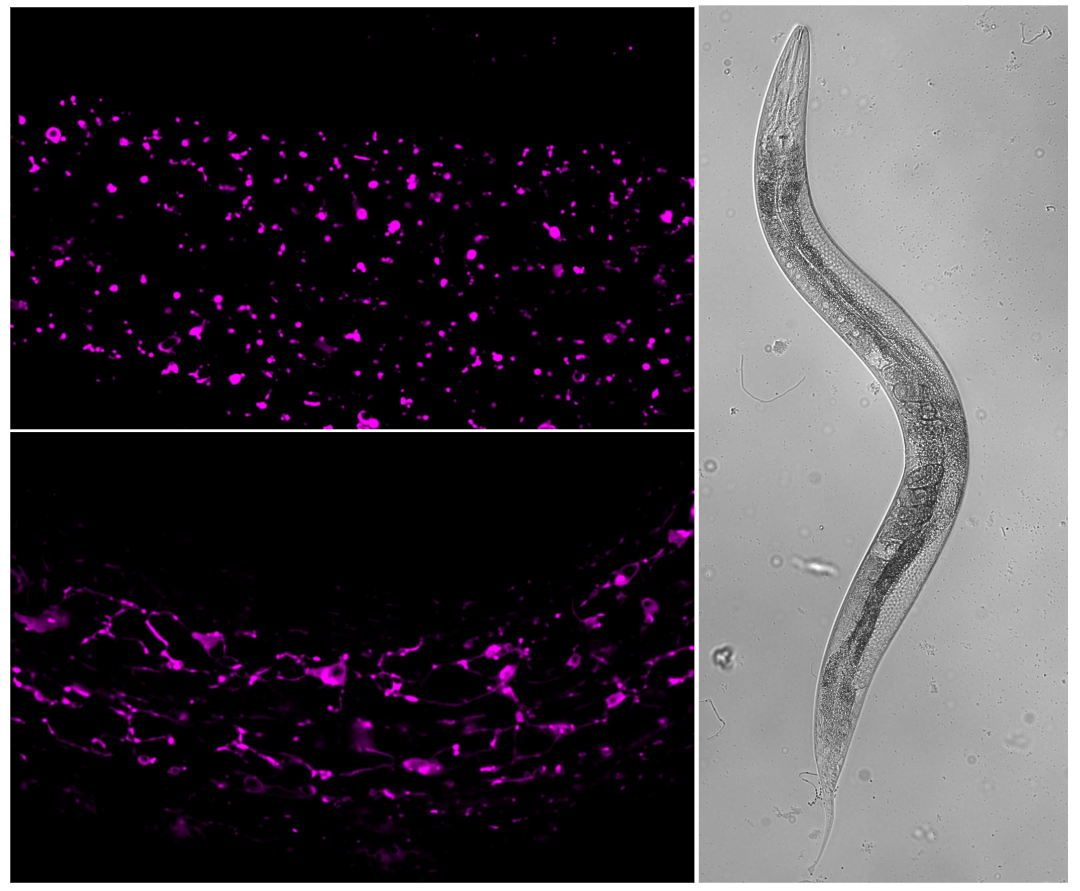LSU Biological Sciences Graduate Student Awarded American Heart Association Predoctoral Fellowship
February 05, 2024

Cristian Ricaurte Perez, PhD student, LSU Department of Biological Sciences
– Credits: Bianca Scolaro
Baton Rouge – Cristian Ricaurte Perez, a third-year PhD student in Biological Sciences, received the first ever fellowship from the American Heart Association (AHA) for the LSU College of Science.
The two-year fellowship includes a $27,144 annual stipend, $2,000 for project support, and $4,550 annually for health insurance. It is designed to train promising students in pre-doctoral or clinical health professional degree programs, fostering careers as scientists, physician-scientists, clinician-scientists, or related fields.
As the largest non-profit funder of cardiovascular and cerebrovascular research in the U.S., the AHA has recently broadened its funding focus to encompass overall health and well-being across the lifespan.
Perez’s research aims to uncover mechanisms that can not only extend life expectancy but promote healthier aging. “We want to manipulate a small part of our cells, an organelle called the lysosome, to promote longer and healthier lives, which can, in turn, prevent age-related diseases, such as cardiovascular diseases or cancer,” says Perez.
Lysosomes, also known as digestive organelles, break down materials taken in by our cells and remove excess or worn-out parts of the cell itself. During his first few years of research in Assistant Professor Alyssa Johnson’s lab, Perez and the group discovered that when cells experience low nutrient intake, such as during caloric restriction or starvation, lysosomes transform from their usual round shape into a tubular network. This transformation facilitates autophagy, a process where the cell consumes itself, recycling nutrients needed for normal cellular functions. While dietary restriction has long been linked to increased lifespan, Johnson’s group recently found that the formation of the peculiar tubular lysosomes is essential for these benefits to occur. The results, published in Nature Aging last year, even show that artificial induction of tubular lysosomes via specific genetic manipulations can increase lifespan without the need for food deprivation.
“We are now working on identifying a small molecule that, once delivered to cells, could naturally increase these tubular lysosomes,” explains Perez. “For that, I will be working with the model organism C. elegans, a type of nematode. I will measure how these changes in lysosomes impact how long the worms live, how active they are as they age, and how well they clear up protein aggregates (or cell waste), which is a measure of how well the lysosomes are doing their job. This information will tell us how well they live as they age.”

Perez’s project aims to identify a molecule capable of altering lysosome conformation from round (top left) to tubular (bottom left). Tubular lysosomes exhibit high degradative capacity and have been demonstrated to increase and enhance the lifespan of C. elegans worms (right). Understanding these mechanisms could pave the way for future preventive aging gene therapy.
The goal is to eventually create a small enough molecule that can be easily delivered to cells, with the potential to evolve into a preventive gene therapy in the future. “The primary risk factor for neurodegenerative diseases, cancer, and cardiovascular diseases is aging. The shift in the field has transitioned from addressing each specific disease individually to focusing on the major risk factor. Through the promotion of healthier aging, we would be able to establish a comprehensive approach that could effectively prevent all these health conditions,” adds Johnson.
Originally from Bogotá, Colombia, Perez emphasizes that receiving this award is a significant career achievement as a first-generation college student. He adds, “being awarded such a prestigious fellowship marks a significant progress to further develop my scientific career. I express sincere gratitude to all those who support underrepresented groups in science.’’
After graduating with a Bachelor of Science in Medical Microbiology and Bacteriology from Universidad Colegio Mayor de Cundinamarca, Perez worked as a research scientist with the Instituto Distrital de Ciencia, Biotecnología e Innovación en Salud – IDCBIS, Bogotá for four years. During this period, his research centered on developing a cell-based product aimed at treating degenerative bone-related diseases. Deciding to pursue an academic career, Perez came across Johnson’s research and contacted her about applying for a PhD in her lab.
“When I first spoke to Cristian, he stood out as an exceptional candidate, going above and beyond most applicants,” says Johnson. “He was eager from the start, even before officially beginning the program, delving into literature, having frequent Zoom meetings, and crafting a mini proposal. That initial project eventually evolved into the foundation of his final proposal submitted to the American Heart Association, and really took our lab’s preliminary data far beyond, into new directions,” explains Johnson.
Perez’s accomplishments also include co-authorship in the Nature Aging paper, co-led by Alyssa Johnson and Assistant Professor Adam Bohnert, as well as a recent poster presentation award at the 4th Interventions in Aging Conference held in Croatia, in October 2023.